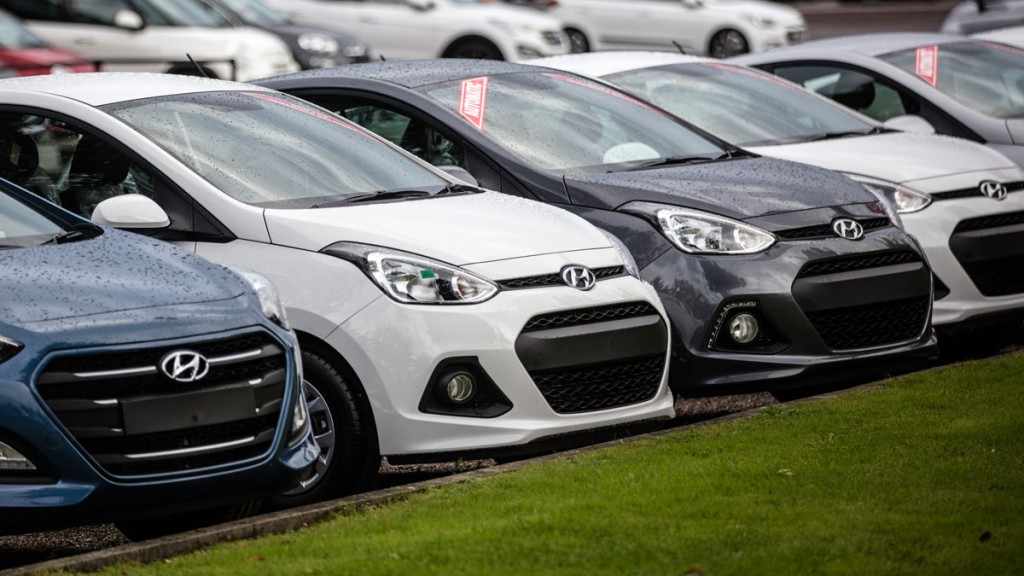
You will be bored with hearing this by now, but I have been looking for a new (ish) car (Hyundai i10 or Fiat Panda, perhaps). I’m bored with it too. Shopping for a car when you don’t already know what you want is excruciatingly time consuming, because you can’t look at them all in one place.
But the one thing I have noticed along the way is just how differently people buy cars these days. Or rather, don’t buy cars these days: most people just borrow them for a bit.
Up to 80% of car sales are now done via “personal contract plans”, a type of financing that allows you to put down a deposit and then pay a monthly fee for three years (this is why all cars are now advertised by monthly cost, not actual cost). At the end of the three years you can return the car at no cost (unless you have driven more miles than you said you would, or damaged it), buy it outright with a final “balloon” payment, or put down another deposit and get another new car. Most (80%) do just that.
It feels cheap (the monthly payments are low); it is convenient; and it means you get to drive a new car pretty much all the time. It might also mean that you own and pay for the car during the most expensive three years of its life (this is when the main depreciation is). But no one seems to mind that much.
That’s why the UK’s car fleet is one of the newest in the world (an average of six years old vs nine years in the EU and 11.5 in the US) and why 2.7 million new cars were registered in the UK last year.
Not all were sold – according to the dealer I was discussing the matter with this morning on Radio 4’s Today programme, around 500,000 were probably registered by the dealers to secure manufacturer incentive payments and may still be languishing on forecourts as “pre-reg” deals. But that’s still an awful lot of happy people driving around in lovely new cars with reversing cameras, hill-start assist and voice-controlled Bluetooth.
So what’s the problem? The same as it always is. PCP deals are effectively debt. They are as popular as they are because they are cheap. They are cheap because interest rates are insanely low. So they are all part of a growing (again) debt problem in the UK.
Consumer credit has grown at a rate of nearly 11% in the last 12 months (we haven’t seen double-digit growth rates here for nearly a decade); and household debt to GDP is back up over 140% (it hit 160% at its pre-crisis peak).
That doesn’t look like a problem right now for the simple reason that, with interest rates so low, the cost of servicing all the debt is low – it came to 10% of household income in 2007 but comes to a mere 4-5% now. But that could all change fast: if interest rates rise (and they will!) the problems of the past could come back to haunt us.
Debt: it can be a good thing, but it doesn’t take much to turn it into a bad thing.